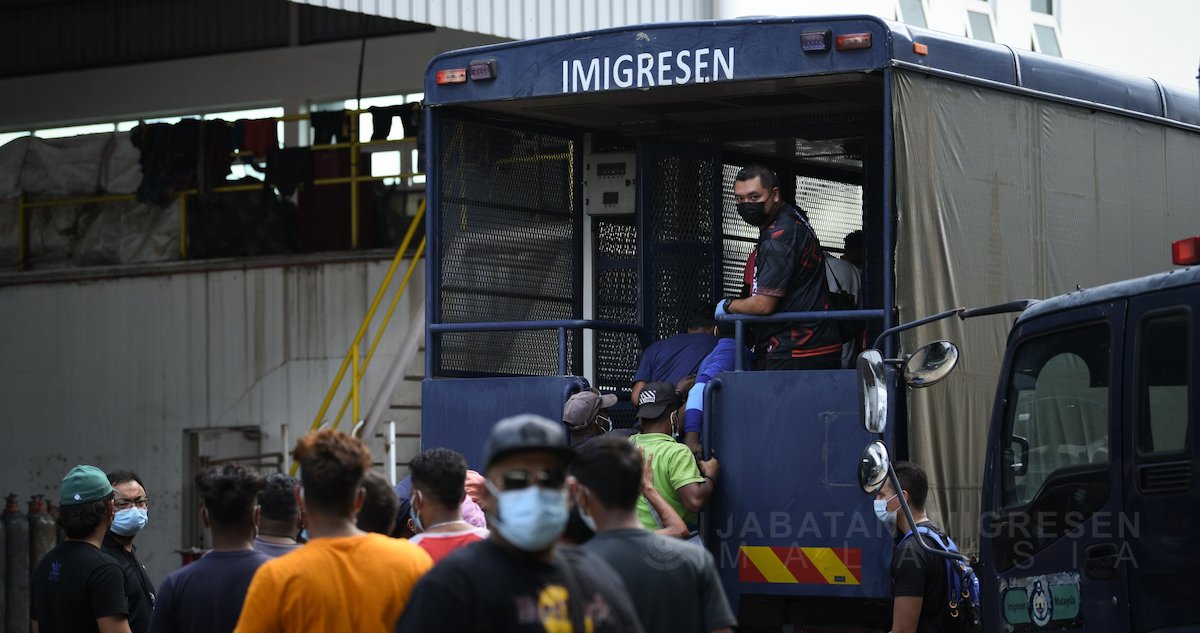IN May last year, Malaysians thought they were experiencing the height of the pandemic. Against the backdrop of isolation and social distancing, economic woes and worsening mental health, xenophobia reared its ugly head.
Covid-19 clusters among foreign workers ― largely due to poor housing conditions and lax screening at construction sites ― saw immigration crackdowns on ‘red zones’ and the rounding up of hundreds of migrants, including asylum-seekers and minors.
When I was a journalist I covered these raids and managed to secure interviews with several migrant workers living under the circumstances of the pandemic and accompanying lockdown. The stories they told were harrowing: packed like sardines in small flats, going hungry, unable to provide for their families back home.
If there is anything the pandemic should have taught us, it is that none of us are safe until and unless all of us are safe.
This doesn’t just apply to matters such as vaccine inequality, where nations like ours in the Global South are struggling to secure enough supply while wealthy countries in the Global North can afford enough vaccines to immunise their populations many times over. It also applies on a domestic level. If we do not protect the most at-risk groups living in this country, we will never defeat the pandemic. To call out wealthy western nations for vaccine hoarding but effectively deny some of the most marginalised groups in the country access to healthcare is a hypocritical policy position.
Demands that undocumented migrants need to “surrender” to the authorities and that UNHCR must furnish the government with a list of registered refugees is counterproductive to the goal of herd immunity and arguably a violation of our international legal obligations ― the right to health must be enjoyed without discrimination.
Also illogical is the suggestion that migrant workers, who make up an estimated 15 per cent of the workforce, will not contribute extensively to herd immunity if vaccinated. Migrant workers are part of the fabric of this nation and many work in sectors that see them interacting heavily with citizens (although in matters of human rights and healthcare consideration of such a dichotomy should not arise). They are our cashiers, waiters, petrol station attendants, they take our temperatures and give us trolleys when we shop at upscale supermarkets.

It is a shame that there has been an increase in anti-migrant sentiment both amongst the citizenry as well as in policy decisions, from statements from the authorities promising crackdowns on undocumented migrants to shocking videos of foreign workers being sprayed down with disinfectant.
Arresting migrants, regardless of their immigration status, does not bode well for national vaccination plans. To suggest that any crackdown operations are for the national good is a non sequitur: the only outcome from mass arrests would be to inspire fear and push many into hiding.
Migrant rights NGOs and grassroots organisations already have extensive networks throughout these communities, including mobile clinics, that would make it simple for a vaccination process to be carried out without immigration authorities getting involved.
More effective than raids and punitive measures which will only serve to heighten fears of deportation would be an amnesty programme for undocumented migrants for the period of the pandemic, a measure that would bolster trust in the government amongst the migrant community.
The rallying call of the nation ― lindungi diri lindungi semua ― throughout the Covid-19 pandemic is also a sober reminder that none of us are safe unless all of us are safe. To that end, it is imperative we do not scupper our own efforts by treating vaccine equity as an afterthought.
This article was first appeared in the Malay Mail on 01 July 2021






